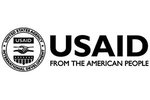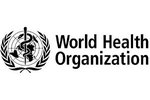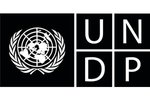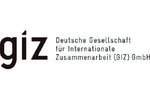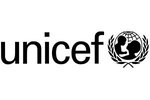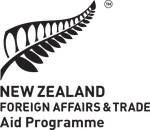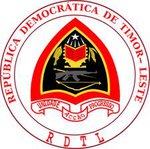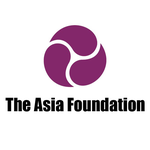Cash in a Crisis: The Power of Tech in Enabling Transparent Transfers in COVID-19 times
How we used tech to support the Government of Timor-Leste in distributing >$60 million in cash to 300,000 households within a month.
In a crisis like the COVID-19 pandemic, governments and civil society need ways to provide critical social protection to the masses. Fast. Nothing is quite as fast as giving cash directly, and thoughtful tech can make this process more transparent than ever.
Cash transfers are a way to deliver protection in a speedy manner, reduce funds spent on program overheads to provide optimal value-for-money, and put power straight into the hands of the people who know their needs best.
There is a wealth of evidence that giving cash directly is an effective way to help people living in poverty and that, despite problematic stereotypes, recipients of cash do not systematically waste or misuse it. Cash transfers are even more effective in crisis situations like the global pandemic we have found ourselves living through for over a year now.
Not only is it more important in a crisis that protection be delivered quickly and that no dollar be wasted, but cash transfers also allow for covering the diversity of needs people have during a crisis that cannot always be predicted at the outset. They also create multiplier effects on the economy through people’s purchases.
Like most of the world, Timor-Leste placed strict lockdown restrictions on its population in March last year to prevent the spread of COVID-19. This compromised the incomes of Timorese households and put many people’s livelihoods at risk.
To ease the burden the lockdown placed on people’s finances, the Government of Timor-Leste decided to give a $200USD payment to households near universally across the country.
Timor-Leste’s social security system is in an early stage and only covers civil servants and others working in the formal economy. This means that most people, including the poorest, are not covered. It was important to the government that this cash transfer left no one behind.
Delivering these payments was a major challenge in a country where the average person does not have a bank account. Traditional digital bank transfers were not possible. A fit-for-purpose solution tailored to the Timorese context was needed to deploy the funds across 452 villages.
The Timorese Government requested support from the Australian Government funded Partnership for Human Development program to design and implement the emergency cash transfer program. It was important that the payments were delivered in an accountable, timely manner which thoughtful tech was well-suited to enable.
That’s where we came in. Working closely with the government, we provided technical support and assistance to the COVID-19 Cash Transfers System and developed a digital system which enabled near real-time monitoring of the delivery, verification, and reconciliation of payments.
Data was also collected on complaints made about processing issues, and on how beneficiaries and local community leaders evaluated the process. This was a way to ensure the nationwide distribution of the transfers was transparent and well-coordinated.
Tablets were used for data collection in the field, so a training program had to be rapidly developed to ensure that those on the ground could effectively gather and submit this data. Real-time support was also provided by remote specialists to the 452 teams across the country.
Information collected was then made available to the government through a transparent platform that it could use to monitor its progress throughout the process. It was also used to keep the public, as well as the Prime Minister, President, and parliament, informed.
Being able to report often to the public was a critical aspect of the program for the government. Each day, we would prepare a report with the latest figures which the government would then communicate to the media during a daily press conference. This level of accountability was unprecedented in Timor-Leste.

“For the first time we have implemented a big activity like this with a successful result. The success is because partners and government collaborated well together”

A New Way to Look at Complaints
Across the rapid roll out of the transfers, around 15,700 complaints were registered using the issue tracking system we developed for follow-up and resolution.
Complaints tend to be viewed negatively, but that is not how we see them. We welcome complaints because we welcome any feedback that helps us iterate on our processes and improve.
Moreover, the existence of complaints does not mean that a program is failing in the same way that a lack of complaints does not mean that a program is successful. Complaints only exist in systems that are built to be accountable and where feedback is actively sought after.
Working with the government, we were able to identify patterns in the complaints and build a tool to automatically categorise them and accelerate their resolution based on such categories.
Analysis conducted on the complaints will also be useful for the government in the future when considering options for delivering social protection during a crisis. Notably, there is some evidence that the success of this program may have increased political appetite for the expansion of existing cash transfer systems.
Overall, the reception to how the transfers were managed was overwhelmingly positive, with 87% of respondents that received the payment having reported themselves ‘highly satisfied’ with the process. Further, 96% of local leaders responded that they believed the process had been fair and several recommended that it be applied to other social payments in the country.
How Things are Going Today
The COVID-19 cash transfer program has now wrapped up. While we provided the majority of technical support between May and August last year, we assisted with follow-up analysis and resolution of complaints in the months following.
The Asia Foundation, who we work with on our Hamahon program, conducted three broad surveys on the government’s response to COVID-19 throughout last year as well as a review of effectiveness of the cash transfers. The latest survey showed that in September, most people (79%) still considered COVID-19 to be the biggest challenge facing the country.
However, the level of trust that the government would take care of its people had increased to 83% from 64% in July and 49% in May, which indicates that the government has been doing something right in its response.
Moreover, the review of the transfers system showed that the local economic impact of the payments has been largely positive. Payments had a major impact on improving short-term food security while also supporting informal businesses to reopen.
In March this year, the country went back into lockdown, and some movement restrictions remain in place today. For example, unvaccinated people cannot enter or leave Dili in normal circumstances. A State of Emergency has been declared that will last until at least 1st July. This is a struggle for our staff in Timor-Leste as it is for the whole country. We hope that all our friends in Timor-Leste are staying safe and hopeful in these times.
Thank you to Australian Aid for supporting this program.
To learn more about Catalpa, head on over to our website or follow us on Facebook, LinkedIn, and Twitter.

